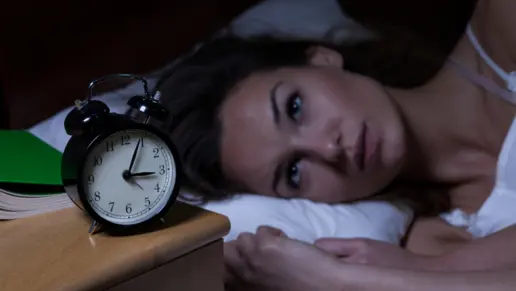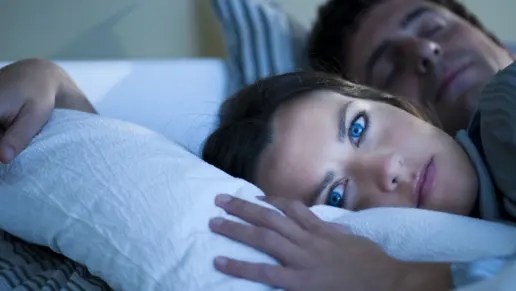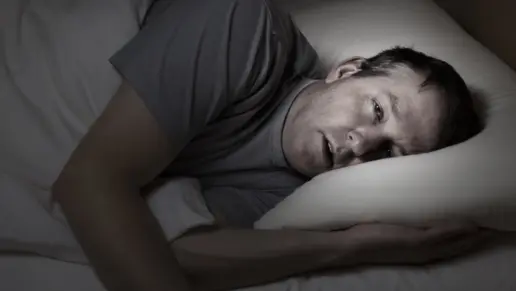Many people experience sleep disturbances when they’re recovering from drug addictions. This is especially during early recovery when people have trouble going to sleep or staying asleep throughout the night. Sleep medications like zaleplon (Sonata) can help.
Withdrawal symptoms and changes in brain chemistry often play roles in inhibiting a good night’s rest. According to the Substance and Mental Health Services Administration (SAMHSA), sleep difficulties increase the risk for relapse.
Prescriptions and close monitoring by physicians can address sleep disturbances and are important parts of early recovery treatment. Sonata is one example of a sleep medication.
What is Sonata (Zaleplon)?
Sonata is the brand name of a prescription sleep medication that contains zaleplon as its active ingredient. Zaleplon is a non-benzodiazepine hypnotic medication and is classified as a central nervous system depressant.
This class of medications slows down the nervous system and helps you fall asleep faster. While zaleplon helps you fall asleep, it doesn’t sustain sleep for the entire night or reduce the number of times you might awaken during the night.
Sonata comes in 5-10 mg capsules. The adult dose is typically 10 mg at bedtime with a maximum recommendation of 20 mg per day. The geriatric dose is typically 5 mg at bedtime and 10 mg maximum per day. Sonata is intended for short-term use only for up to five weeks at most and should only be used under a doctor’s order.
How Zaleplon Works in the Body
Zaleplon achieves sedation in a similar way as benzodiazepines do, by interacting with certain subunits of gamma-aminobutyric acid (GABA) neurotransmitters, or chemical messengers, in the brain. GABA receptors prevent overexcitation in the central nervous system and regulate sleep.

Zaleplon is more selective than benzodiazepines in its interaction with GABA receptors by mainly targeting GABA-A receptors that provide faster sedative effects and lead to a quicker onset of sleepiness and less residual sedation upon awakening.
Zaleplon’s specialized sleep effects are due to its very short half-life that allows for full absorption of the medication within about an hour of administration.
Sonata and generic zaleplon are formulated for people who’ve trouble falling asleep. It doesn’t significantly assist with the ability to stay asleep the entire night. This difference sets Sonata apart from many other sleep medications designed to provide all-night sleep but have greater residual sedation effects.
Zaleplon FAQs
Yes. Sonata is the brand name of the medication. Zaleplon is the generic name.
Sonata is better than other medications for helping you fall asleep. It’s not as good as other sleep aids in helping you sleep all night. Sonata also has a lower risk of next-day sedation and drowsiness.
Yes, but only if it’s prescribed by a physician. Sonata should be used cautiously because it has potential for abuse and addiction. It’s recommended for short-term use only, often for only a few days, but up to five weeks maximum.
Common side of zaleplon include the following:
- Sleepiness or drowsiness
- Stuffy or runny nose
- Headaches
- Dizziness or lightheadedness
- Tingling, prickling, or numbness on skin
Sonata Medication in Therapy and Recovery
Sonata can be used in conjunction with therapy for people recovering from substance use disorders or mental health issues. Sonata can help manage sleep disruption that often occurs during early recovery. But this medication must be prescribed by a doctor.
In addition to pharmacological support, psychological and behavioral therapies are recommended treatments for drug treatment programs.
Medications like zaleplon can help manage specific symptoms, such as poor sleep, while psychological and behavioral therapies modify attitudes and behaviors. The combination of both help you gain new coping skills to replace drug use for dealing with difficult or stressful issues.
A meta-study on the combined use of medication and therapy for substance use disorders concluded that best practices in addiction treatment should include pharmacotherapy and cognitive behavioral therapy or other evidence-based therapies.

Examples of evidence-based therapies used in addiction treatment involving insomnia include:
Cognitive Behavioral Therapy for Insomnia (CBT-I): addresses thoughts, feelings, and behaviors that contribute to insomnia.
CBT challenges fears and negative feelings about sleep problems by using relaxation techniques to encourage healthy sleep habits. Such habits include consistent sleep-wake schedules and avoiding the use of television or electronic devices in the bedroom.
Trauma-informed Therapy: helpful for relieving insomnia symptoms related to trauma-specific incidences.
Eye movement desensitization and reprocessing (EMDR) is one approach that desensitizes traumatic memories and emotions. The patient engages in back-and-forth eye movements while recalling a traumatic event.
The bilateral brain activity caused by eye movements are similar to rapid eye movement during sleep, and memory processing re-activates and updates neural networks involved in maintaining traumatic memories. Specialized training is required for therapists who deliver EMDR therapy.
Less Common Zaleplon Side Effects and Other Considerations
In addition to the common side effects of zaleplon listed above, these less common and rare side effects are among those that are possible:
- Anxiety
- Fast or irregular heartbeat
- Fever
- Hives or skin rash
- Loss of appetite
- Trembling
- Unsteadiness or balance issues
- Chills
- Cold sweats
- White spots on the lips or mouth.
- Problems with memory or judgement
- Problems with speech
- Difficulty swallowing
- Painful urination
- Unusual bleeding or bruising
Other considerations to be wary of regarding zaleplon include:
- Zaleplon has the potential to be addictive. If you have a history of substance use disorders, you may be more susceptible to developing dependency or relapse. Use the medication only under a doctor’s supervision and for as short a time as possible. If you still need the medication after 7-10 days, consult your doctor about extended usage.
- Don’t drink alcohol while on zaleplon.
- Zaleplon can adversely affect other medical conditions, including asthma, sleep apnea, kidney disease or liver disease. Use your prescription with caution and under a doctor’s supervision if you have one of these conditions.
- Only use the medication at bedtime and when you have at least 7-8 hours before being active again.
- If you miss a dose, don’t double up the next time. Maintain your regular dosing on the following night.
- If you find that you’ve participated in activities during the night and can’t fully remember doing them (evidence of sleepwalking, preparing and consuming food or making phone calls), contact your doctor right away to report these incidents.
- Don’t change or stop your medication dosage without consulting your doctor. You may have to wean off the medication to avoid withdrawal symptoms.
Sonata vs. Ambien and Lunesta: Which Is Right for You?
Sonata (zaleplon), Ambien (zolpidem) and Lunesta (eszopiclone) are all non-benzodiazepine sleep medications. Each one binds to GABA-brain receptor sites. All have potential side effects and risk for drug tolerance and dependency.
Ambien and Lunesta last longer than Sonata and can help you get a fuller night’s sleep. But they are more prone to producing next-day drowsiness. Lunesta can cause headaches or leave a bad taste in your mouth. Lunesta is like Sonata and begins to work within about an hour or less.
None of these sleep medications are intended as a long-term treatment for insomnia. When it’s time to stop taking sleep medication, you should gradually reduce your dosage under the supervision of a doctor. Psychological support like CBT may be beneficial as well.
The lack of sleep is worrisome on its own. But when combined with substance use disorders and underlying mental health issues, poor sleep or not enough sleep can severely lower your quality of life. Check out directories like Rehab.com for resources to address co-occurring conditions and to get your life–waking and sleeping hours–back under control.
Featured Facilities Near You
Finding facilities near you…




